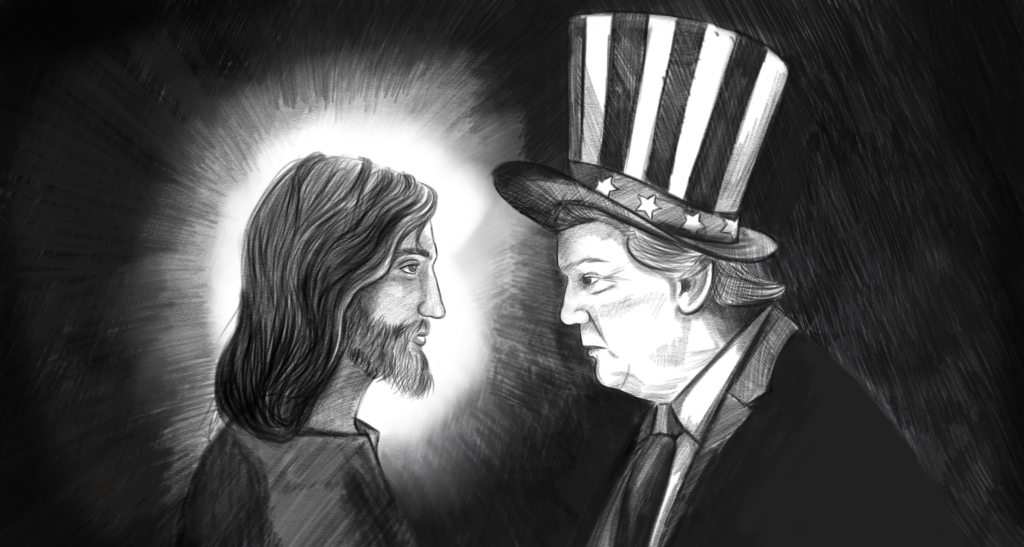We live in a time of deep political polarization that is ripping through Christian communities and spreading arrogance, antagonism, and indifference.
Many Christians believe that God is sovereignly at work and returning American society to its Christian heritage through new political leadership. Many others believe that our leadership is morally bankrupt and that Christians should resist being seduced by promises of power for a better future. Still others have lost interest altogether and insist that Christianity is apolitical and unconcerned with what happens in the public square. All three groups – and many others – call themselves “Christian” and claim to follow “Christ” or Jesus.
Rather than taking sides, in this series of essays, I want to stop and think about the politics of Jesus that we find in the four primary sources about his life (known as “Gospels”). Was Jesus political? If so, how was he political, and what can we learn from his words, actions, and the wider story of his life for our politics today? Fresh clarity and conviction are urgently needed. Maybe a new beginning is possible.
Hannah Arendt, one of the greatest political thinkers of the 20th century, called Jesus “the only completely valid, completely convincing experience Western mankind ever had with the active love of goodness as the inspiring principle of all actions.” Arendt herself was not a Christian, and yet she praised Jesus for his “originality and unprecedentedness” and studied his insights for her own political philosophy.

Still, many Christians today don’t look to Jesus as a primary source for their politics, despite confessing, “Jesus is Lord” (Romans 10:9), which was a deeply political statement in the Roman Empire where Caesar claimed to be “Lord.” I think overlooking the political nature of Jesus is a missed opportunity for profound insight and one of the reasons we are so polarized today. We have depolicitized Jesus as a purely spiritual savior and cut ourselves loose to do politics as we wish, when we have brilliant resources for our political imagination waiting to be rediscovered.
For the next several weeks, I want to reread the Gospels and ask a bunch of questions including: How did Jesus’s politics begin, and what was the role of his radical young mother? What is the mark of true power? Should we have room in our society for outsiders and infidels? Is it ever right to disobey political authority? Who was Jesus’s hero, and what does this reveal about his vision of greatness? What did Jesus actually preach and practice? What are the implications for how we see and do politics today? Could Christian politics actually be good news for our polarized time if Jesus is put back at the center?
In this series, I’m not going to claim that Jesus addressed all of our contemporary questions and issues. He didn’t. Nor am I am going to claim that copying and pasting what we find in Jesus’s politics is the solution to all of our problems. It’s not that simple. But I do believe that Jesus was far more political than we often assume and that his life, preaching, and practice have brilliant insights and challenging implications that can help us reimagine and even revolutionize how we see politics today.
In the essays ahead, when I refer to “politics,” I’m not primarily interested in elections, lawmaking, bill signing, and the other trappings of formal “politics” we easily think of today. I’m much more interested in the larger culture of how we organize our relationships in community, the way we imagine and exercise power together through speech and action, and how all of this sources and shapes the more explicit “politics” of our society. I’ll be working with a wider scope and starting further upstream.
I’m excited to stop and think about the question, “Was Jesus Political?” Please join me.
Lastly, if you are looking for mental health resources, Stephen Hays created The Stigma Podcast. Check it out here: https://stigmapodcast.com/




